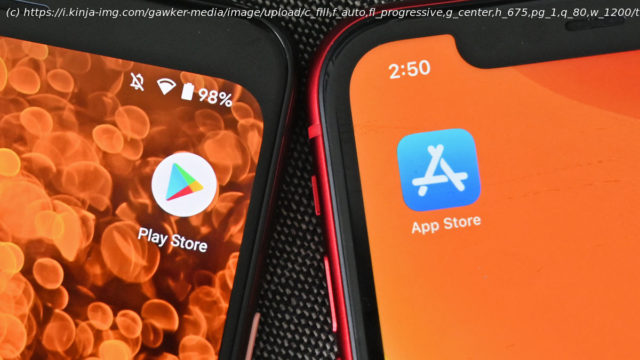Epic Games was prepped for battle when it added a new feature to Fortnite this week that allowed users to buy the game’s virtual currency (V-Bucks) directly from Epic, simultaneously bypassing the payment systems built into the iOS App Store and Google Play store and eliminating Apple and Google’s usual cut.
Epic Games was prepped for battle when it added a new feature to Fortnite this week that allowed users to buy the game’s virtual currency (V-Bucks) directly from Epic, simultaneously bypassing the payment systems built into the iOS App Store and Google Play store and eliminating Apple and Google’s usual cut. To pretty much no one’s surprise, this got Fortnite booted from both app stores faster than being yeeted from the Battle Bus. Epic promptly responded by filing lawsuits against both Apple and Google, and the company also released a video mocking Apple for its practices and poking fun at the company’s iconic 1984 commercial. It was clear from the jump that Epic came ready to brawl, and while Fortnite may have been the catalyst, the reckoning for Apple and Google’s App Stores has been a long time coming. Smartphones have overtaken laptops as our primary computing device, and with the death of Windows Mobile—the only potentially viable smartphone OS alternative—in 2017, it’s fair to say that Android and iOS—and by extension Google and Apple—have an outsized influence on people’s phone habits. You can side-load apps on Android by installing them manually using an APK, or even create your own fork of Android that features a third-party store (moves that both Amazon and Huawei have attempted with varying degrees of success), but Google’s Play Store remains the easiest and most trusted way of getting new Android apps. Google charges a service fee of around 30% for developers who want to be in the Play store. For people who use iOS, things are even more restrictive—Apple doesn’t allow any third-party device makers to license iOS for use on other phones, and because iOS doesn’t allowing side-loading or manual installation of apps (aside from some niche developer-related cases), your only method of getting new apps to run on an iPhone is the App Store.
Домой
United States
USA — software The Reckoning Over Apple and Google's App Stores Has Been a Long...






